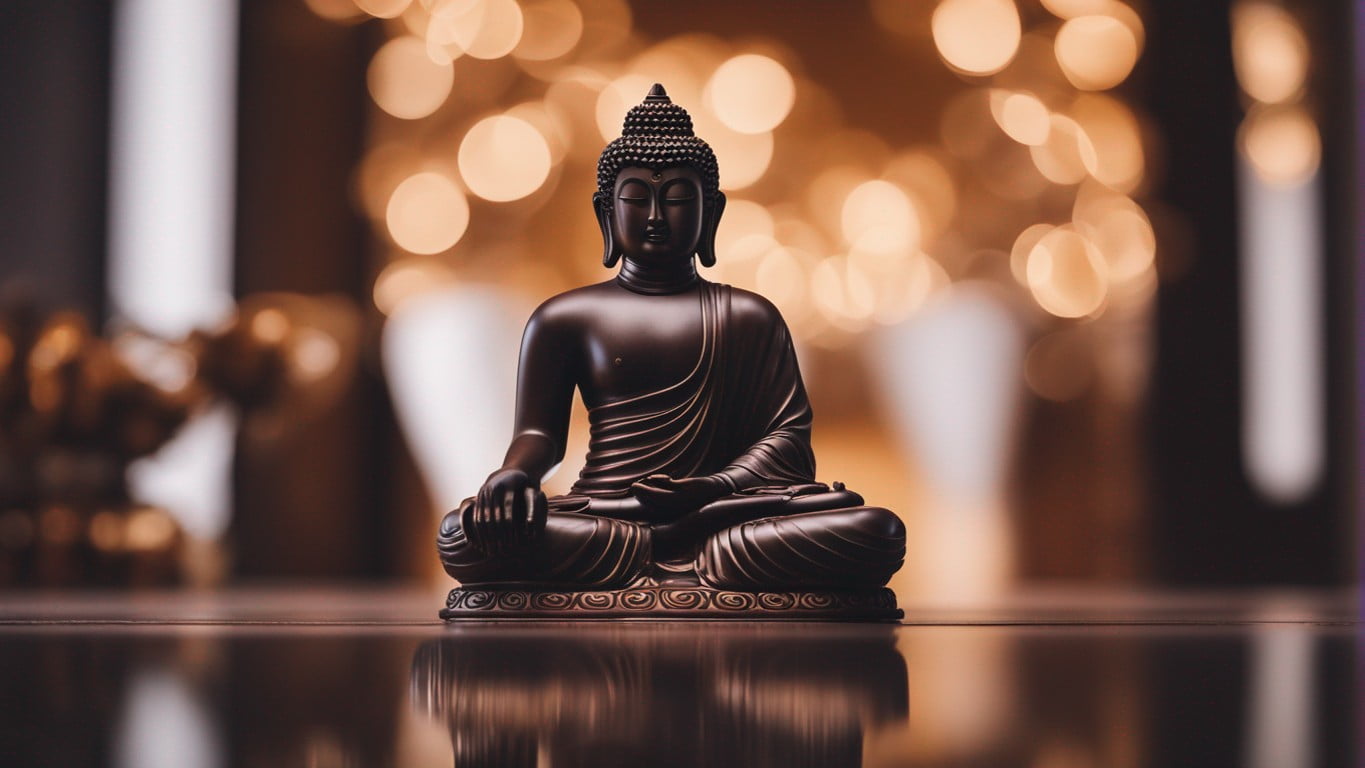
Putting Buddhism Back in Buddhist Meditation
Buddhist meditation retreats have become increasingly popular in recent years, with many people seeking to find relaxation, recharge, and a sense of centeredness in their lives. However, as the popularity of these retreats has grown, the true essence of Buddhist meditation has been diluted and often lost. Many retreats now focus more on relaxation and self-improvement, rather than on the deep spiritual and religious aspects of Buddhism. This article explores the challenges that Buddhist centers and teachers face in reclaiming the true purpose and meaning of meditation, and the importance of understanding the religious traditions and teachings that underpin it. It highlights the need for individuals to approach meditation with a sense of reverence and respect, and to recognize that it is more than just a tool for relaxation or self-improvement.
Recapturing the True Essence of Buddhist Meditation
The article begins by recounting the story of a couple who signed up for what they thought would be a meditation retreat for people of all backgrounds, only to discover that it was a serious Buddhist religious experience. This highlights the common misconception that meditation can be divorced from its religious context and practiced in a secular and individualistic way. Many people approach meditation as a means of relaxation and stress reduction, without fully understanding or appreciating the religious and spiritual traditions that underpin it.
The article argues that efforts to reclaim the true essence of Buddhist meditation face significant challenges, as decades of popular conception and misinterpretation have shaped the way meditation is understood and practiced in the West. It notes that many people come to meditation seeking relief from anxiety and stress, without realizing that these are not the primary goals of Buddhist meditation. The true purpose of meditation, according to Buddhist teachings, is to attain enlightenment and liberate oneself from the cycle of birth and death.
The Diverse Landscape of Buddhist Traditions
The article also explores the diversity of Buddhist traditions and teachings, which can make it difficult to define a singular and unified approach to meditation. Buddhism is a collective noun for many different forms of practice, teachings, and rituals that have evolved over more than 2,000 years in various cultural and geographical settings. Different traditions, such as Theravada and Mahayana, have distinct emphases and teachings regarding the path to enlightenment.
Furthermore, the article acknowledges the debates that exist within the Western Buddhist world regarding the role of metaphysical beliefs like karma and rebirth. Some Western Buddhist teachers argue that these beliefs are essential to a deep understanding of Buddhism, while others maintain that one can be committed to a Buddhist way of life without accepting them. These debates highlight the challenges of defining Buddhism and its practices, particularly in the diverse and secular context of the West.
The Evolution of Meditation and Its Misconceptions
The article delves into the historical evolution of meditation within Buddhist traditions. It notes that meditation was traditionally seen as a tool for monks and nuns to achieve enlightenment, rather than a practice for the general layperson. Meditation was viewed as a means of deepening one’s comprehension of the Buddha’s teachings and accepting core Buddhist beliefs, such as the recognition that experience is suffering and the importance of overcoming attachment to the material world.
However, in recent centuries, meditation has taken on new meanings and applications. It has been used as a form of cultural resistance in Southeast Asian countries and has become part of the mindfulness movement in the West. Leaders like Jon Kabat-Zinn sought to promote meditation as a secular practice for mental health and stress reduction, divorced from its religious origins. This shift in understanding and presentation has led to the popular misconception that meditation is primarily a tool for relaxation and self-improvement, rather than a means of achieving spiritual enlightenment.
Reclaiming the Religious Framework of Buddhist Meditation
The article highlights the efforts of some Buddhist centers and teachers to emphasize the religious and spiritual dimensions of meditation. It notes how some retreat centers have become more explicit in their advertising, clearly stating that they are not merely meditation centers but monasteries devoted to Buddhist training and practice. These centers impose strict rules and expectations, such as following the Eight Precepts of Buddhism and adhering to the monastic schedule. By reclaiming their religious framework, these centers aim to reorient the practice of meditation towards its true purpose and meaning.
The article also acknowledges the challenges and resistance encountered by Buddhist teachers who try to convey the deeper aspects of meditation to their students. Many students come to meditation with preconceived notions and expectations, viewing it through the lens of therapy or self-improvement. When confronted with the religious and spiritual dimensions of Buddhist practice, some individuals may feel uncomfortable or disinterested. This underlines the need for individuals to approach meditation with an open mind and a willingness to explore the teachings and traditions of Buddhism.
The Rewards of Embracing the True Essence of Buddhist Meditation
The article concludes by highlighting the potential rewards of embracing the true essence of Buddhist meditation. It shares the experiences of individuals who initially found the idea of silent retreats and intensive meditation daunting, but ultimately emerged from these experiences feeling calmer and more centered. It suggests that being thrust out of one’s comfort zone and confronting the deeper truths and challenges of meditation can lead to profound personal growth and transformation.
By recognizing meditation as a deeply spiritual and religious practice, individuals can engage with it in a more meaningful and conscious way. They can approach meditation with reverence, understanding that it is a path towards liberation and enlightenment. This shift in mindset can help individuals reap the true benefits of meditation and align their practice with the profound teachings of Buddhism.
Key Points:
- Many contemporary meditation retreats fail to emphasize the religious and spiritual aspects of Buddhism.
- There is a misconception that meditation is primarily a tool for relaxation and self-improvement, rather than a means to achieve spiritual enlightenment.
- The diversity of Buddhist traditions and teachings makes it difficult to define a singular approach to meditation.
- Efforts to reclaim the religious framework of Buddhist meditation face challenges due to decades of popular misconceptions.
- By embracing the true essence of Buddhist meditation, individuals can experience profound personal growth and transformation.
Source Article: https://therevealer.org/putting-buddhism-back-in-buddhist-meditation/



